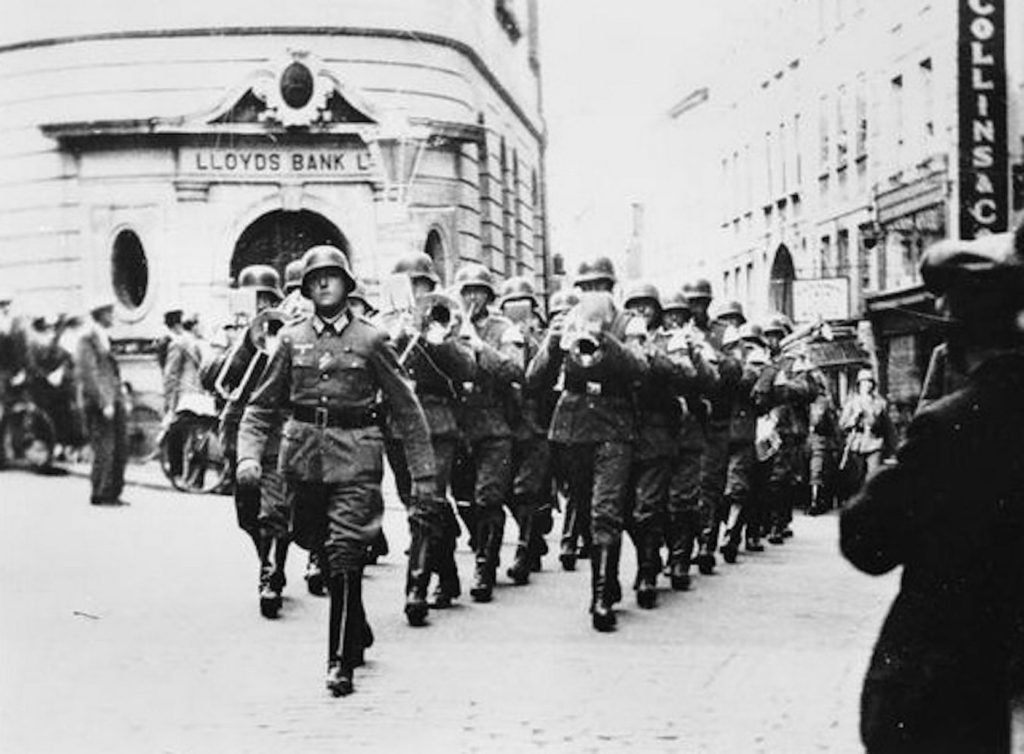
In March 1940, restrictions were lifted on travel to and from the mainland. The Channel Islands were seen as an important tourism centre and a boost to morale for British citizens. On 11 June, 26 Whitley bombers flew from Jersey and Guernsey to Italy to assist the British war effort in the battle of France. By 15 June, France had been lost to Germany and Sir Winston Churchill took the decision to demilitarise the Channel Islands, unbeknown to Hitler. On 16 – 18 June, Jersey Yacht Club assisted in the evacuation of British troops from St Malo but there were no plans to evacuate the islanders. Opinion was divided between the various island governors and in the confusion, each island made its own decision. Alderney evacuated everyone whereas the Dame of Sark instructed her inhabitants to stay. Guernsey began preparations to evacuate its children, giving parents the option to stay or go with them. With time running out, the majority of Jersey islanders chose to stay with just 6,600 leaving out of the 50,000 population.
Unaware the islands were demilitarised, Hitler bombed Jersey and Guernsey on 28 June 1940. Taking possession of a Guernsey airfield, German troops began arriving and by 1 July, Jersey had surrendered. Occupying the islands was a boost for German propaganda and formed part of Hitler’s defence plans for an Atlantic Wall.
On 8 May 1945, the Prime Minister, Winston Churchill, made his famous speech to mark the end of the war. Within it were the words:
“and our dear Channel Islands are also to be freed today.”
However, people in Jersey only officially realised the war was over when they saw HMS Beagle sail into St Aubin’s Harbour on 9 May. Today ‘Liberation day’ is marked with a public holiday for Jersey and Guernsey on 9 May, Sark on 10 May and Alderney on 16 May.
